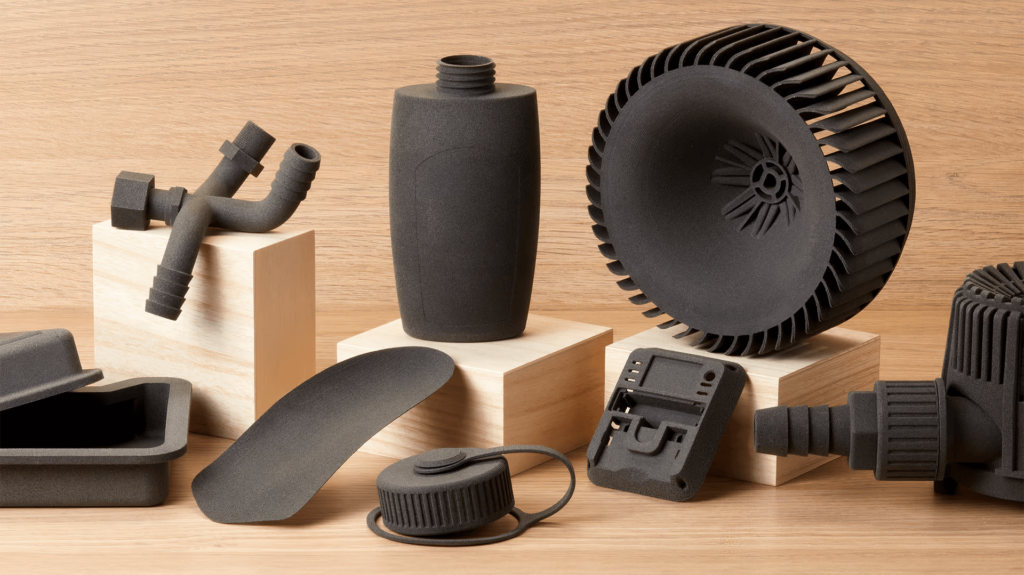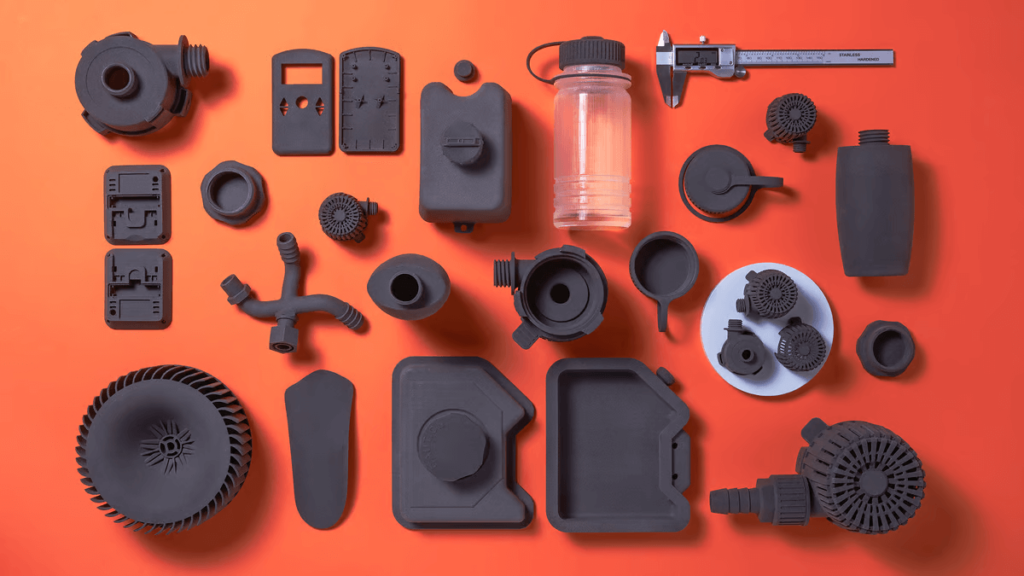
Selective laser sintering from Formlabs with its new polypropylene material offers more options for parts for automotive, medical and electronic applications.
As one of the most affordable 3D printers for Selective laser sintering (SLS) on the market in terms of price and ease of use, Fuse 1+ 30W on Formlab has become a machine for all kinds of nylon parts. Now Formlabs, at the 2024 Consumer Electronics Show in Las Vegas, is launching a new material for Fuse: polypropylene (PP).
Polypropylene is the second most widely produced commodity plastic in the world and preferred for injection molding. In 3D printing with PP, it retains all its sought-after properties, including light weight, durability, flexibility and recyclability. Hinges and hoses, for example, represent a very popular use because PP can be repeatedly bent without breaking.
PP has a lower moisture absorption rate than nylon and is more resistant to water and moisture-induced degradation, making it suitable for applications where water resistance is important, such as automotive hoses, tanks and housings, and outdoor products. Polypropylene is also less affected by chemical exposure than nylon, especially to acids and solvents, and also performs well in sub-zero temperatures.
The Fuse SLS only offered Nylon PA11 (plus CF-PA11), Nylon PA12 (plus GF-PA12), and TPU as material options previously.
"The polypropylene one powder will expand the SLS portfolio, enabling users to print products typically made of polypropylene, such as home appliances, electronics, sports equipment, custom lab equipment, prototypes, production tools and more, efficiently and at low cost with Fuse 1 + 30W 3D printers,” he says Formlabs.

More benefits of 3D printing on PP include its very high dust refresh rate and relatively low melting temperature, which matches the cheaper fiber laser of Fuse. Like FDM, however, warping is a serious issue that not only affects dimensional accuracy, but can also lead to print crashes, making polypropylene a difficult material to work with.
Fuse is far from the only SLS printer capable of producing parts in PP, which you can find in the menu of Sinterit Lisa X, Farsoon eForm, Nexa3D QLS 230 and others.
PP in general, it is usually cheaper and easier to manufacture than nylon. Formlabs PP the powder retails for $450 for 5kg and is now the cheapest polymer powder option. It is more recyclable and has less impact on the environment compared to PA. Formlabs PP it boasts an ultimate tensile strength of 29.0 MPa, a flexural strength of 37.0 MPa and a tensile modulus of 1.64 GPa.
0 Comments